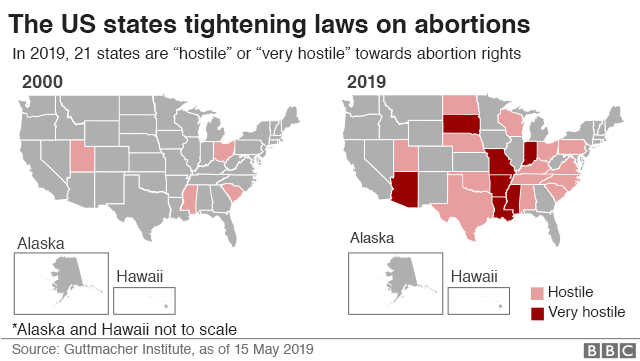States with Strict Abortion Laws

What are Strict Abortion Laws?
Strict abortion laws are those that place significant restrictions on a woman’s right to have an abortion. These can include waiting periods, mandatory counseling, and bans on abortion after a certain point in pregnancy. Some states have even passed laws that criminalize abortion and subject women who have the procedure to potential jail time.
States with the Strictest Abortion Laws
There are several states that have enacted particularly strict abortion laws. These include:
- Alabama: In 2019, Alabama passed a law that criminalized abortion in almost all cases, including cases of rape and incest. Doctors who perform abortions can face up to 99 years in prison.
- Georgia: In 2019, Georgia passed a law that bans abortions after six weeks of pregnancy, before many women even realize they’re pregnant.
- Mississippi: Mississippi has a 15-week ban on abortions, with no exceptions for rape or incest.
- Ohio: Ohio has a six-week ban on abortions, with no exceptions for rape or incest.
- Texas: Texas has a six-week ban on abortions, and private citizens can sue anyone who they believe helped someone get an abortion.
What are the Advantages and Disadvantages of Strict Abortion Laws?
There are several arguments for and against strict abortion laws. Some of the potential advantages include:
- Protecting the rights of the unborn child
- Reducing the number of abortions performed
- Encouraging women to carry their pregnancies to term and give birth
However, there are also several potential disadvantages to strict abortion laws, including:
- Limiting women’s access to safe and legal abortion
- Forcing women to carry unwanted pregnancies to term
- Putting women’s health and safety at risk by driving them to seek out unsafe and illegal abortions
FAQ
Q: What is Roe v. Wade?
A: Roe v. Wade is a landmark Supreme Court case from 1973 that established a woman’s right to have an abortion.
Q: Can states completely ban abortion?
A: No, states cannot completely ban abortion, as this would violate the Supreme Court’s decision in Roe v. Wade. However, they can pass laws that place significant restrictions on the procedure.
Q: Are there any exceptions to the six-week abortion bans?
A: In some cases, there may be exceptions for cases where the woman’s life is in danger. However, most six-week abortion bans do not include exceptions for cases of rape or incest.
Q: Are there any states with particularly lenient abortion laws?
A: Yes, there are several states that have more lenient abortion laws, including California, Colorado, and New York.
